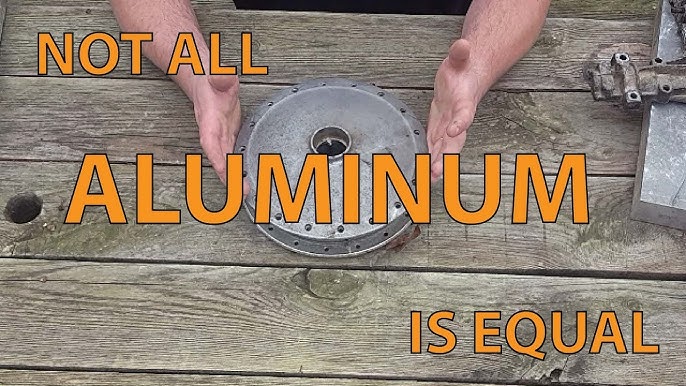Stahl Specialty Company for Dummies
Stahl Specialty Company for Dummies
Blog Article
3 Easy Facts About Stahl Specialty Company Shown
Table of ContentsTop Guidelines Of Stahl Specialty CompanyWhat Does Stahl Specialty Company Mean?The smart Trick of Stahl Specialty Company That Nobody is DiscussingWhat Does Stahl Specialty Company Do?Some Known Details About Stahl Specialty Company
The refined difference depends on the chemical content. Chemical Contrast of Cast Aluminum Alloys Silicon promotes castability by lowering the alloy's melting temperature level and enhancing fluidness during casting. It plays a critical role in enabling intricate mold and mildews to be filled properly. In addition, silicon adds to the alloy's toughness and wear resistance, making it valuable in applications where longevity is essential, such as automobile components and engine components.It additionally enhances the machinability of the alloy, making it less complicated to process right into ended up items. This way, iron contributes to the total workability of light weight aluminum alloys. Copper boosts electrical conductivity, making it advantageous in electrical applications. It also enhances rust resistance and includes in the alloy's overall stamina.
Manganese contributes to the strength of aluminum alloys and enhances workability. It is commonly utilized in wrought light weight aluminum items like sheets, extrusions, and profiles. The visibility of manganese aids in the alloy's formability and resistance to breaking during manufacture processes. Magnesium is a lightweight component that offers stamina and influence resistance to aluminum alloys.
It allows the manufacturing of lightweight components with outstanding mechanical homes. Zinc boosts the castability of light weight aluminum alloys and assists manage the solidification procedure during spreading. It boosts the alloy's strength and hardness. It is often discovered in applications where elaborate shapes and fine details are needed, such as ornamental castings and particular vehicle components.
Our Stahl Specialty Company PDFs
Due to the fact that aluminum-silicon alloys have great casting residential properties, high gas residential or commercial properties, straightforward processes, and excellent deterioration resistance, aluminum-silicon alloys are most generally used in the die-casting industry in the house and abroad. At the exact same time, aluminum-silicon alloys are likewise fairly very early and extensively acknowledged alloys created and used in die-casting. After continuous research study and improvement, a lot of the current worldwide mainstream aluminum-silicon alloys have actually been wrapped up and are absolutely nothing greater than A356, A360, A380, ADC12, B390, and A413.
The key thermal conductivity, tensile strength, return strength, and elongation vary. Select suitable resources according to the performance of the target item created. Among the above alloys, A356 has the highest possible thermal conductivity, and A380 and ADC12 have the most affordable. The tensile limitation is the contrary. A360 has the finest return toughness and the greatest prolongation rate.

Stahl Specialty Company Fundamentals Explained
In precision casting, 6063 is well-suited for applications where elaborate geometries and high-grade surface area finishes are paramount. Instances consist of telecommunication rooms, where the alloy's superior formability allows for streamlined and cosmetically pleasing layouts while preserving structural honesty. In the Illumination Solutions sector, precision-cast 6063 components create sophisticated and efficient lighting components that need elaborate forms and good thermal performance.
(https://pxhere.com/en/photographer-me/4464448)
It results in a better surface area finish and far better deterioration resistance in A360. The A360 shows premium prolongation, making it perfect for complex and thin-walled parts. In accuracy spreading applications, A360 is appropriate for industries such as Customer Electronic Devices, Telecommunication, and Power Tools. Foundry. Its improved fluidness enables for intricate, high-precision components like smart device cases and interaction tool real estates.

In precision spreading, light weight aluminum 413 beams in the Consumer Electronic Devices and Power Devices markets. This alloy's superior corrosion resistance makes it an excellent selection for outside applications, making sure lasting, durable items in navigate to this site the discussed markets.
Stahl Specialty Company - Questions
As soon as you have made a decision that the aluminum die casting procedure is ideal for your job, an important next step is picking the most suitable alloy. The aluminum alloy you pick will substantially impact both the spreading procedure and the homes of the last product. As a result of this, you must make your decision carefully and take an educated technique.
Figuring out the most appropriate aluminum alloy for your application will imply weighing a large variety of qualities. These relative alloy qualities follow the North American Pass Away Casting Organization's guidelines, and we have actually split them right into 2 classifications. Aluminum Casting. The first classification addresses alloy qualities that impact the manufacturing process. The second covers qualities impacting the residential or commercial properties of the end product.
The alloy you choose for die casting directly impacts a number of facets of the spreading process, like just how very easy the alloy is to work with and if it is prone to casting issues. Hot cracking, additionally referred to as solidification cracking, is a regular die casting flaw for aluminum alloys that can result in interior or surface-level rips or fractures.
Our Stahl Specialty Company Ideas
Specific light weight aluminum alloys are more susceptible to hot splitting than others, and your selection needs to consider this. An additional typical defect found in the die spreading of light weight aluminum is pass away soldering, which is when the actors stays with the die wall surfaces and makes ejection hard. It can damage both the cast and the die, so you ought to try to find alloys with high anti-soldering residential or commercial properties.
Deterioration resistance, which is currently a significant feature of aluminum, can vary substantially from alloy to alloy and is an essential characteristic to take into consideration relying on the ecological problems your product will be subjected to. Put on resistance is one more property generally sought in light weight aluminum items and can set apart some alloys.
Report this page